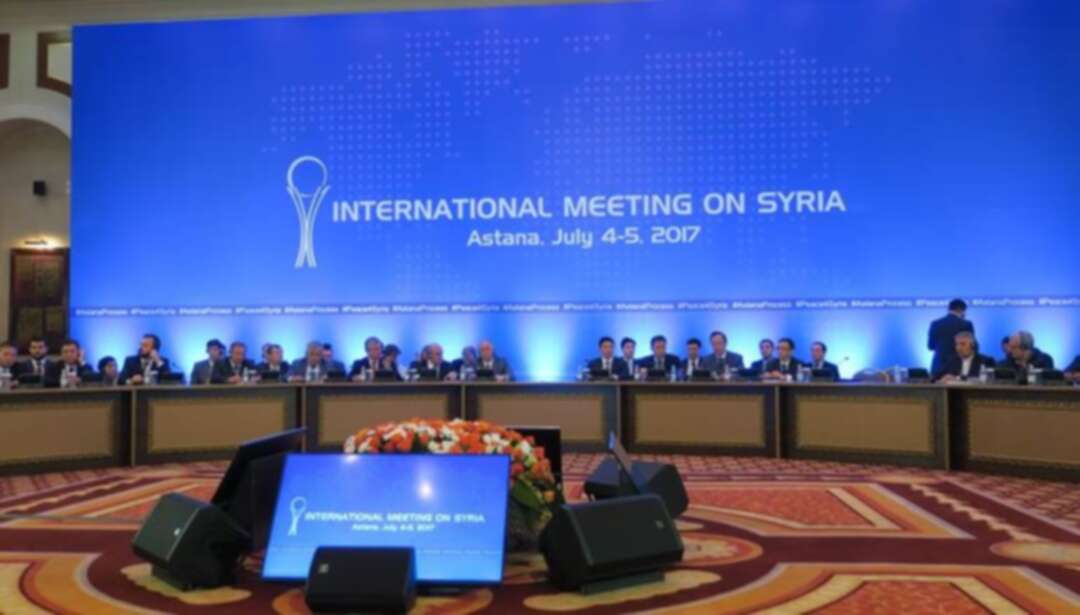-
Russia, Iran, and Turkey Continue Dividing the Syrian Cake in Astana 22
-
The trilateral talks highlight a stark model of dividing spheres of influence in Syria among regional powers that ignore Syrian aspirations, reflecting a painful scene of continued external guardiansh

In the Kazakh capital on Monday, chapters of the well-known play called "Astana" talks continued in its 22nd version between the powers controlling the Syrian scene (Russia, Iran, and Turkey), amid blatant disregard for Syrians' rights.
These two-day political maneuvers continue under Russian planning and coordination with Ankara and Tehran, to discuss "expected changes in US policy toward Syria under President-elect Donald Trump," according to statements by Russian envoy Alexander Lavrentiev.
Regional interests dominate the agenda, especially amid the expansion of the Gaza war toward Lebanon and repeated Israeli strikes on Syria, while continuing to marginalize the Kurdish issue and minority rights.
Lavrentiev emerged as a coordinator of the three countries' interests, ignoring Syrian people's demands for freedom and democracy. Concerns are growing about exploiting potential changes in US policy to tighten control over Kurdish areas, especially with the possibility of US forces withdrawing from eastern Syria.
The participating delegations continue their meetings, perpetuating the policy of excluding major components of the Syrian fabric from determining their fate.
Since its launch in 2017, the Astana format has represented a model of external guardianship over Syria, where Russia, Iran, and Turkey share influence and interests, ignoring the rights of the Syrian people in all their components to determine their destiny.
Levant-Follow up
You May Also Like
Popular Posts
Caricature
BENEFIT Sponsors BuildHer...
- April 23, 2025
BENEFIT, the Kingdom’s innovator and leading company in Fintech and electronic financial transactions service, has sponsored the BuildHer CityHack 2025 Hackathon, a two-day event spearheaded by the College of Engineering and Technology at the Royal University for Women (RUW).
Aimed at secondary school students, the event brought together a distinguished group of academic professionals and technology experts to mentor and inspire young participants.
More than 100 high school students from across the Kingdom of Bahrain took part in the hackathon, which featured an intensive programme of training workshops and hands-on sessions. These activities were tailored to enhance participants’ critical thinking, collaborative problem-solving, and team-building capabilities, while also encouraging the development of practical and sustainable solutions to contemporary challenges using modern technological tools.
BENEFIT’s Chief Executive Mr. Abdulwahed AlJanahi, commented: “Our support for this educational hackathon reflects our long-term strategic vision to nurture the talents of emerging national youth and empower the next generation of accomplished female leaders in technology. By fostering creativity and innovation, we aim to contribute meaningfully to Bahrain’s comprehensive development goals and align with the aspirations outlined in the Kingdom’s Vision 2030—an ambition in which BENEFIT plays a central role.”
Professor Riyadh Yousif Hamzah, President of the Royal University for Women, commented: “This initiative reflects our commitment to advancing women in STEM fields. We're cultivating a generation of creative, solution-driven female leaders who will drive national development. Our partnership with BENEFIT exemplifies the powerful synergy between academia and private sector in supporting educational innovation.”
Hanan Abdulla Hasan, Senior Manager, PR & Communication at BENEFIT, said: “We are honoured to collaborate with RUW in supporting this remarkable technology-focused event. It highlights our commitment to social responsibility, and our ongoing efforts to enhance the digital and innovation capabilities of young Bahraini women and foster their ability to harness technological tools in the service of a smarter, more sustainable future.”
For his part, Dr. Humam ElAgha, Acting Dean of the College of Engineering and Technology at the University, said: “BuildHer CityHack 2025 embodies our hands-on approach to education. By tackling real-world problems through creative thinking and sustainable solutions, we're preparing women to thrive in the knowledge economy – a cornerstone of the University's vision.”
opinion
Report
ads
Newsletter
Subscribe to our mailing list to get the new updates!






















